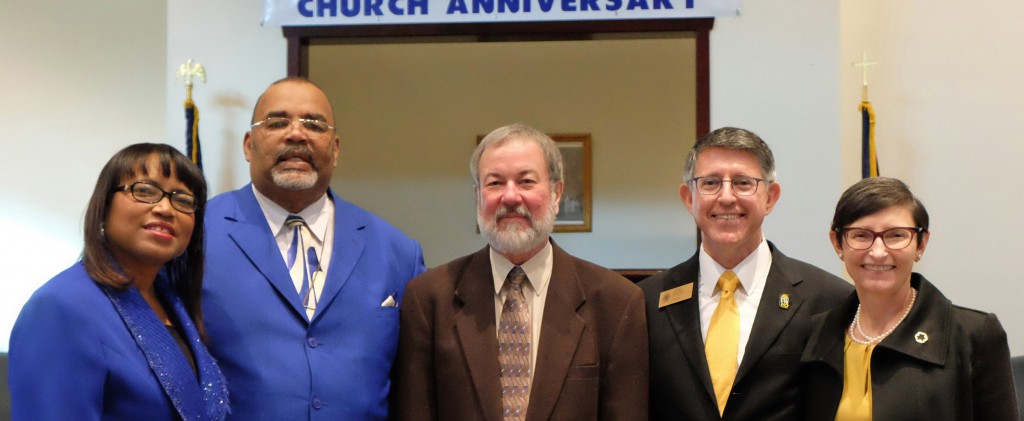Page 69 • (3,707 results in 0.042 seconds)
-

about yet another racially-motivated incident in our country, we have another stunning situation to process: The resignations of the University of Missouri’s top two administrators represented a remarkable coup for student protesters, who have long demanded that leadership deal with their concerns about pervasive racism, among other issues on campus. But the looming question now – for Mizzou and for every college campus in the nation – is what happens next? How does a university create a climate in
-
; ecosystems are threatened; the climate is changing; and human communities live with the realities of overpopulation, pollution and the loss of clean water. The study of the environment is a response to these global challenges.Quick Links Catalog Why Study Environmental Studies at PLU? At PLU, the Environmental Studies Program invites students to explore connections, to understand causes and consequences of environmental problems, and to train for possible careers in a wide variety of environmental fields
-

thoughtful care. This summer, we renewed our commitment to being a university that does not shy away from difficult conversations about white supremacy and inequity; to re-evaluate our climate, policies, curriculum; and to create a more authentic, inclusive, and actively anti-racist learning and working environment. We continue to move forward with this work. (See the Seven Actions for Institutional Equity and Anti-racism at PLU.) What I saw in Washington, D.C., and Olympia this week only strengthens my
-
Two Lutes fundraising for ACS U.N. Climate Change conference in Marrakech Current Lute Maddie Smith (’17) and recent alumna Alice Henderson (’16) have been selected for an amazing opportunity this Fall. They are 2 of 8 students selected nationwide (and the only ones from the West Coast) to be delegates representing the American Chemical Society… September 16, 2016
-

: Their jobs Immigration Attorney, Hernandez & Associates, PC Climate Strategist, Manifest Climate, Toronto Housing Development Specialist, State of Colorado Americorps Reading Lab Mentor, Wa He Lut Indian School Associate Financial Analyst, S&P Global International Program Coordinator, Bellevue College Teacher, Hoquiam School District Outreach and Referral Specialist, Yamhill Community Care Volunteer Coordinator, Interfaith Action of Greater Saint Paul Graduates from the last last 5 years: Their
-
365: Climate Justice (4) RELI 397: Indigenous Religions and Cultures of the Pacific Northwest (4) 4. Interdisciplinary Advanced Courses in Environmental Studies – 8 semester hours Each student will complete these two synthesis courses that integrate methods and content of various academic perspectives to develop approaches to complex environmental challenges. The courses serve to raise questions, create products, or produce explanations that cannot be addressed within the framework of a particular
-

see some of the harm that our society is doing so that they can’t really ignore it and live the same way they have been.” And it’s not only the students who are having revelations. Heath has discovered that this fictional world created by imagining a starship allows for conversations, and disagreements, that are otherwise impossible. For example, when he asked two different biology professors about creating a biosphere, one was adamant that it had to be based on a tropical climate in order to
-

to, for example, has benefited from chemicals that came from a plant—aspirin came from willow, originally,” said Assistant Professor of Biology Romey Haberle. “Having all Biology majors take botany classes is because of our commitment as a liberal arts institution to educate the whole individual, and doctors, for example, need to understand all of biology.” Additionally, the greenhouse will serve research needs and faculty/student collaborations. Professors such as Neva Laurie-Berry, Mary Ellard
-

Studies program at PLU, a venture that led to networking with local indigenous leaders. Hall even worked with her current Samish supervisor for her language studies, part of the curriculum in her individualized interdisciplinary major in Native American and indigenous studies. “I’m the first Samish member to get college credit for studying my own language,” Hall said. Her academic journey culminated in a passion for cultural revitalization. The seed that was planted with Hall’s initial research in
-
injuries, reducing medical errors, improving practice flow, using evidence-based research in practice, and utilizing resources appropriately. From a systems perspective, this means creating an organizational climate where excellence is valued and practiced. Organizational commitments to quality can include policies, procedures, tools, systems, and performance measures that support a safe and high-quality healthcare delivery system. Transformational Leadership Leadership is described as transformational
Do you have any feedback for us? If so, feel free to use our Feedback Form.


